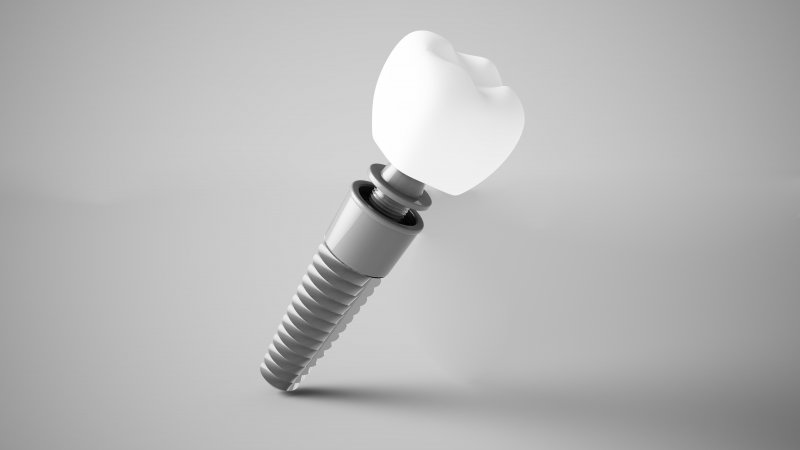Dentures have allowed many people to comfortably enjoy a lifelike smile after extensive tooth loss, but these false teeth can leave a lot to be desired for many patients. Dentures can have a hard time chewing on tough, chewy, or crunchy foods and require regular adjustments to keep fitting properly. Many patients with dentures might be curious about what it’s like to make the switch to strong, sturdy, and irremovable dental implants. Here’s a short outline of what it’s like to switch from dentures to implants.
How Are Dental Implants an Improvement Over Dentures?
Dental implants are considered to be the pinnacle of tooth replacement because they look and work just like the real thing and only require the same hygiene practices as natural teeth. While patients may have difficulty chewing many nutritious foods with dentures, dental implants can handle any food that real teeth can. Dentures can also lose their fit as the mouth changes shape, causing them to slip and slide about the mouth, making it difficult to speak or chew or leading to embarrassing situations where one’s dentures fall out of their mouth.
The mouth continues to develop after tooth loss, and the jawbone needs stimulation to stay healthy and strong. After a tooth is lost, the bone structure in the jaw that supported it loses the exercise it needs to stay strong and will atrophy and recede as time goes on. This can lead a patient to develop an elderly and withered appearance. While dentures don’t do a lot to exercise the jawbone, dental implants restore this stimulation and can prevent or reverse bone loss in the jaw, keeping the patient looking young and robust.
How Can I Be Prepared to Receive Implants?
Dental implants require healthy gums and jawbones to be placed. If you have any gum disease, it will need to be resolved before you can receive implants. This can be done through seeing your dentist for treatment and practicing excellent oral hygiene. Tobacco is horrible for the health of your gums and a common culprit behind implant failure, so it’s good to abstain from the habit during the implant process and best to kick the habit entirely.
If your jawbone does not have enough mass to support dental implants, bone grafting may be able reinforce the structure. During bone grafting, donor bone will be placed along your jawbone through an incision in the gums. During the healing process, the jaw will integrate this new bone tissue into itself, which can strengthen it enough so it can host implants.
After healing, dental implants behave just like real teeth, meaning a former denture patient can forget about denture adhesives and overnight soaking. Consulting with your dentist can determine if you are a good candidate for dental implants.
About the Practice
Moreno & Young Dental delivers excellent dental health services to the community of Bellingham, WA. Led by Drs. Ronald A. Moreno, John Young, and Peter Pfeiffer, the staff ensures each patient receives effective oral health care in a warm and welcoming environment. Areas of expertise include preventive, restorative, cosmetic, and emergency dentistry as well as denture and dental implant services. For more information on switching from dentures to dental implants, contact the office online or dial (360) 676-0642.


